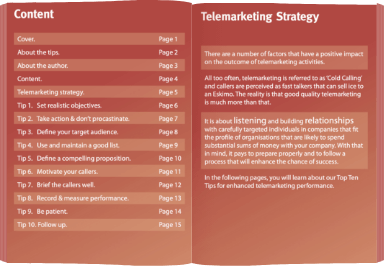We’ve produced several blogs on the importance of good questions. As far as we’re concerned, perfecting questioning techniques is one of the most crucial aspects of effective selling and good telemarketing. Without questions, sellers talk more and listen less. They come across as pushy and only interested in themselves. Not a great start to a sales call.
One would hope that the skill to ask relevant and rapport-building questions comes naturally to most people involved in sales. Sadly, that’s not the case. They either fire lots of information at prospects making them sound like the world’s worst cold caller, or they come across like a boring market research survey, all stiff and stilted.
So, what are the right kinds of questions? And when do you use them?
At GSA, we typically don’t start a telemarketing call talking about our business. Of course, you’ve got to have a strong intro or you’ll never get to ask a question in the first place. But, let’s assume for a moment you’ve overcome the first hurdle and grabbed the attention of the prospect. What next?
For my own sales calls, in many ways, I like the concept of ‘pattern interrupt’. The logic behind this sales technique is to break the perceived seller-buyer pattern. The buyer ‘expects’ the seller to start in a certain way using the same tired language, used by every other sales person, followed by a predictably long list of services.
We try hard to not come across as traditional sales people. We want to be perceived more as trusted advisers, from the outset, that are in the process of assessing whether there is value in a conversation and whether we can help. It isn’t about pitching or spewing out a long list of the things we offer and do for clients. It’s more about the start of a two-way dialogue to establish credibility and viability for the prospect.
Assuming that we’ve got past that uncomfortable first phase, we need to engage fast. That means asking a simple question such as:
Bill, I don’t want to waste your time as I’m not sure whether what we do is relevant for you so do you mind if I ask a few quick questions to see if it is?’
If it’s a warm call to start with, the prospect will often jump in at that point and start telling us about their business anyhow. If it’s a cold call, and they perhaps grudgingly let you continue, what questions might you ask to keep the conversation flowing? The specifics of the questions are likely to be different for different organisations, services, and sectors. Likewise, dependent on the job role of the decision-maker.
Typically, we break the questions down into two types i.e. profiling questions (sometimes called specific questions) and solution selling questions. And, you need a blend of both for it to work well. You also need a mix of open and closed questions. Closed questions enable you to filter for relevance and direct the flow of the call e.g. Have you done telemarketing in the past? Open questions enable you to gather pertinent information and are more of the solution selling variety e.g. How do you get your sales leads at the moment? Below are examples of what we use.
Typical Profiling Questions
-
-
- How frequently do you find a need to boost lead generation?
- What’s the job role of the decision maker that typically buys your services?
- How many lead per month do you need to drive sales?
-
Typical Solution Selling Questions
-
-
- How do you handle lead generation at the moment?
- What’s your biggest challenge when it comes to lead generation?
- What’s stopping you doing more lead generation now?
-
The above are only a very small sample. We have up to 17 different questions we ask during the course of a prospect call for our business. They support good conversation flow when done correctly.
In truth, we rarely get all of the answers to all of the questions. And we never reel them off in a long list one after the other. It has to be a natural part of the discussion. They are very much a pick and mix yet there are some questions where we need responses in order for us to evaluate whether (1) we can help (2) this is the kind of client we want (3) we feel we are likely to do a good job (4) the ROI will work for the client.
Before we do a proposal and / or quote there are also a number of basic priority questions that are must haves. These are added to some of the questions related to their sales proposition and target audience and include:
-
- What does success look like for them?
- Budget – No-one ever has a budget but it’s important to ask
- When do they want a proposal?
- When do they hope to kick off the activity?
- When can I call them back? I always ask for a defined date so I can follow up
Other questions enrich our knowledge and help us to shape a proposal for the prospect that they will hopefully enjoy reading.
Once we have the info we need, and the customer advises that he or she would like a formal proposal, we enter the new prospect onto our CRM system (if they aren’t there already) so we have a record and we fill out the questions replies that are pre-loaded on the system.
The key to the success of this process is knowing what questions to ask for our business and when to ask them. Do you have a set of similar questions for your business? If you don’t, it would be worthwhile to compile a set that you can use.
In the end, an effective sales call is a balance between talking and listening. That balance is mostly driven by the ability of the sales person to ask good questions plus, of course, the propensity of the prospect to answer and engage. Not everyone will allow you the time to ask your questions. Ultimately, there will be a large number of prospects that won’t be in the market. However, if the initial profiling is done pre-call, in order to ensure that you’re calling businesses with which you’d like to trade, good questions will lead to better rapport which in turn will lead to a greater likelihood of keeping the door open to future opportunities.
A questioning approach will inevitably lead to a better chance of doing business with prospects that are in the market now since you’ll better differentiate your business from the many other cold calls that prospect will receive. And, given that the health of a business is often determined by looking at its short, medium and long-term sales pipeline, that’s not a bad thing at all.
GSA helps businesses become more effective in their marketing and business development. We run outbound telemarketing campaigns and also, with our experience, guide SME’s through the maze of marketing choices. We help them make the best choice and spend their budget wisely. If you’d like to know more, give us a call.






